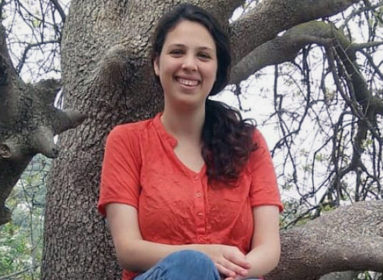
Francois Hollande, Nicolas Sarkozy
By Alina Dain Sharoni / JointMedia News Service (JNS)
Francois Hollande, of the Socialist Party, defeated incumbent president Nicolas Sarkozy of the center-right Union for a Popular Movement on Sunday, May 6, with approximately 52 percent of the vote.
According to the European Jewish Congress, Hollande has said that he will be “uncompromising in the fight against antisemitism,” and he will oppose anything that “could contribute to a climate that would isolate the Jews within their own country.” With regard to the Israeli-Palestinian conflict, Hollande supports two neighboring and sovereign states for Jews and for Palestinians. “Even beyond the Israeli-Palestinian issue, we must be very firm with respect to Iran, whose nuclear program is a vital danger for Israel and for world peace,” he said.
However, Dr. Richard Prasquier, president of the French Jewish community’s Conseil Representatif des Institutions Juives de France (CRIF) umbrella organization, said at a New York press conference on April 30 that a Hollande-led Socialist government could allow parties with strong anti-Israel views to gain influence in France.
“What I know is the new category of Jew bashing comes from the position of anti-Zionism, from those who stigmatize, who vilify the State of Israel,” Prasquier said.
While Hollande has said he is “totally opposed” to the boycott of Israeli products, which he said is “illegal and does not serve the cause of peace,” his government could take on the Communist and the Green parties as coalition partners. Both parties have signed the charter of the Boycott, Divestment and Sanctions (BDS)-France Campaign and made an appeal to boycott Israeli goods in 2009, according to CRIF.
As of 2010 approximately 480,000 Jews lived in France, according to the Jewish Virtual Library. Historically, French Jews have been influential politically and have typically aligned themselves with liberal views.
“They enthusiastically voted for the left as far back as 1981, when they favored the socialist François Mitterrand as President of the French Republic,” Joseph Sungolowsky, professor of French and Jewish studies at Queens College of the City University of New York, told JNS. “But with the rise of the deligitimization of Israel and subsequent anti-Zionist and repeated antisemitic incidents, French Jews veered to the right and in 2007 voted for Nicolas Sarkozy.”
Jewish support for Sarkozy can also be explained by another factor. According to Ethan Katz, a University of Cincinnati historian, France has had five prime ministers of Jewish descent, although some of them were practicing Christians. The first one was Léon Blum in the 1930s and the most recent was Laurent Fabius in the 1980s. These individuals have ranged fairly widely across the political spectrum, from Blum, one of the emblematic figures in the history of the French left, to Michel Debré who was prime minister under Charles de Gaulle and strongly associated with the right. Nicolas Sarkozy is also of Jewish descent through his mother. “Altogether, there’s a way in which I think Sarkozy creates a visceral level of comfort with many French Jews who are concerned about their future,” Katz told JNS.
There are probably some Jews who have been historically active in the political left, and who might be uncomfortable with Sarkozy’s use of anti-immigrant rhetoric. Still, says Katz, “I’ve even spoken to Jews who are uncomfortable with the xenophobic rhetoric but will still vote for Sarkozy because they are more scared of what they see as the threat of ‘Islam’ than they are uncomfortable.”
Up until it was disqualified in the first election round, the French far-right National Front party, led by Marine Le Pen, had been courting Jewish voters. Historically, the party has been known for an antisemitic political platform, but Le Pen distanced herself from that platform, and her party garnered a higher-than-usual 18 percent of the overall vote in the first round. According to Katz, the party began shifting away from focusing on antisemitism even when Jean-Marie Le Pen was still in control. “If you look at his rhetoric, you’ll see that he mentioned Jews less and less, and focused more and more on the threat of Islam,” Katz said.
How France’s Jewish community will fare in the future, or what position the new president will take with regard to the Israeli-Palestinian conflict, is now anyone’s guess.
Katz believes it is certainly possible that Hollande will be less pro-Israel than Sarkozy was, but “If Holland is shrewd, he will work to reach out to the Jewish community in his early months in office.”








 Southern New England Jewish Ledger
Southern New England Jewish Ledger














